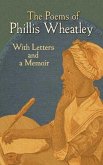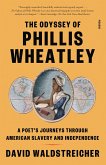Poems on Various Subjects, Religious and Moral (1773) is the first book of poetry published by an African American author. Written while Wheatley was a slave in Boston, the collection was published in England. Regarded for her mastery of classical poetic form, Phillis Wheatley earned praise from Voltaire and George Washington. Poems on Various Subjects, Religious and Moral has long been the subject of scholarly work on the history of African American literature, with some critics arguing that Wheatley's poems proved detrimental to the struggle of enslaved African Americans. Whether Wheatley made excuses for slavery or, as some have argued, included subtle critiques of the institution in her writing, her talent and importance to the history of African American literature remain undisputed. Despite her status as a slave, Phillis Wheatley seems to have viewed herself as a blessed individual, a woman for whom life itself was a sign of God's grace, and in whom talent arose in the form of a foreign language. Many of her poems-elegies, odes, and monologues-are aimed at others. Whether in mourning, in praise, or in warning, Wheatley frequently offers her own voice to university students, royalty, God, the muses, and deceased infants. When she does offer glimpses of herself, for instance, in her poem "On Being Brought from Africa to America," she provides a complex perspective on her status as a slave: "'Twas mercy brought me from my Pagan land, / Taught my benighted soul to understand / That there's a God, that there's a Saviour too." While her words may seem strange to our modern view of the American institution of slavery, they provide an important historical lens onto the adoption of Christianity by African American slaves, who developed a faith grounded in resistance, hope, and redemption. Since our inception in 2020, Mint Editions has kept sustainability and innovation at the forefront of our mission. Each and every Mint Edition title gets a fresh, professionally typeset manuscript and a dazzling new cover, all while maintaining the integrity of the original book. With thousands of titles in our collection, we aim to spotlight diverse public domain works to help them find modern audiences. Mint Editions celebrates a breadth of literary works, curated from both canonical and overlooked classics from writers around the globe.
Bitte wählen Sie Ihr Anliegen aus.
Rechnungen
Retourenschein anfordern
Bestellstatus
Storno








